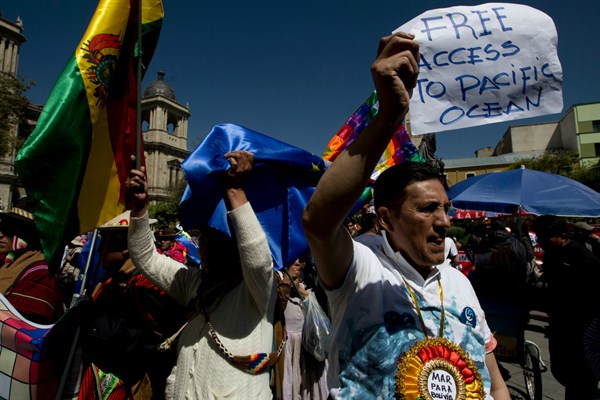On Oct. 1, the International Court of Justice announced its long-anticipated verdict in a case brought by landlocked Bolivia, which argued that neighboring Chile was obliged to negotiate Bolivia’s territorial access to the Pacific Ocean. The ICJ ruled in Chile’s favor, dealing a major blow to Bolivian hopes for a route to the Pacific Ocean more than a century after its current boundaries were decided. Bolivian President Evo Morales, who rose to prominence in part due to his outspokenness on this issue, said after the ruling that “Bolivia will never give up.” In an interview with WPR, Christopher Sabatini, a professor at Columbia University and a non-resident fellow at Rice University’s Baker Institute who specializes in Latin America, discusses the ICJ ruling and its impact on Chile-Bolivia relations.
World Politics Review: What led Bolivia to bring this case to the ICJ, and on what grounds did the court rule in Chile’s favor?
Christopher Sabatini: Bolivia has long chafed at the settlement from the 19th-century War of the Pacific, which lasted from 1879 until 1884 and was fought between Chile and a Bolivian-Peruvian alliance. The Treaty of Ancon and a later truce gave Chile the disputed Litoral Department, depriving Bolivia of 120,000 square kilometers of land and cutting off its access to the Pacific Ocean. The loss of access to the sea has so rankled that, to this day, Bolivia maintains a navy—though it floats around mostly in Lake Titicaca—and has made the issue of recovering a sovereign piece of beachfront property a nationalistic rallying cry. The two countries have not had formal diplomatic relations since 1978.

